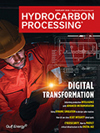Motors
Trump EPA ends emissions limits for U.S. automakers; state rules, lawsuits could follow
Trump's Environmental Protection Agency (EPA) on Thursday finalized its repeal of the "endangerment finding" for vehicles, a 2009 determination that greenhouse gas emissions endanger human health.
Digital Exclusive: Mitigating structural resonance in an electric motor support: A field case study
Rotating equipment operating near structural natural frequencies is prone to resonance, resulting in elevated vibration levels and potential long-term damage. This article discusses a field case involving persistent axial vibration on an electric motor despite acceptable performance during decoupled workshop testing. The discrepancy prompted a full diagnostic investigation, including bump testing, modal analysis and structural reinforcement.
EIA: U.S. transportation fuel demand remains below pre-pandemic levels
Five years after the COVID-19 national emergency was declared, gasoline demand, distillate demand and jet fuel demand all remain less than pre-pandemic averages.
CIMC Enric signs contract with Amon Gas for ammonia-fueled MGCs
CIMC Enric Holdings Limited and its subsidiaries announced that Nantong CIMC Sinopacific Offshore & Engineering Co., Ltd. (CIMC SOE), a subsidiary of CIMC Enric, has signed a shipbuilding contract with the Norwegian company Amon Gas for the construction of 2+2 51,000 m³ ammonia dual-fuel medium-sized LPG/liquid ammonia carriers (MGCs, Medium - sized Gas Carrier).
Case study: Reduce failure in critical motor applications
This article provides a case study on methods how premature failure in new motors can be substantially reduced, thereby improving their longevity and reinforcing their operational durability in industrial environments.
PETRONAS Lubricants India secures aftermarket service fill contract from Mahindra Automotive Division
PETRONAS Lubricants (India) Pvt. Ltd. (PLIPL), a subsidiary of PETRONAS Lubricants International (PLI), has been awarded the aftermarket service fill contract by Mahindra & Mahindra Ltd. (Mahindra), India's leading SUV manufacturer, strengthening its footprint in the country's automotive lubricant segment.
Ebara Elliott Energy signs high-speed balancing bunker agreement to expand Middle East footprint
Ebara Elliott Energy (EEE), a leading provider of turbomachinery solutions, has signed a major purchase agreement for the installation of a high-speed balancing bunker (HSB) in Saudi Arabia, marking a key milestone in the company’s strategic expansion across the region.

- Indorama Ventures outlines SOAR approach to boost chemicals production business 3/4
- thyssenkrupp Uhde delivers technology to CSBP for nitric acid emissions reduction 3/4
- Yokogawa releases OpreX pressure transmitter EJX S Series 3/4
- Indonesia's Chandra Asri declares force majeure as Middle East conflict disrupts supplies 3/4
- QatarEnergy ceases additional downstream unit production 3/4
- KBR awarded 10-yr global catalyst supply contract for Indorama 3/4




